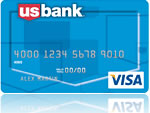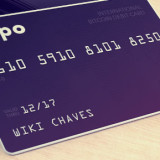The horror stories about credit cards are real. Far too many people have used them irresponsibly and dug themselves a deep, deep financial hole that takes years or decades to get out of. But those unfortunate tales shouldn’t overshadow the very real fact that credit cards have revolutionized how we live, arguably doing for commerce what the automobile did for travel and what the mobile phone has done for communications. Just imagine the pre-credit card days when travel, shopping or going to a restaurant meant carrying around a wallet full of cash or traveler’s checks.
These days, in the wake of the financial crisis – which both spawned tougher regulations and prompted banks to be circumspect about extending credit – many people simply can’t get a credit card. While that is probably a good thing overall, it means that people who have a poor credit history or are simply too young to have established a credit history cannot take advantage of the many real benefits of having a credit card in their wallet. That is, unless they opt to obtain a credit building card, aka as a secured credit card, and begin a journey to obtaining a full-fledged credit card.
What’s ‘Secured’ About It?
A secured credit card comes with a string attached, a fairly big string. To get a secured card, you have to put up some money.
This protects the bank or credit union that issues the card. Fair or not, if you have shaky credit, you’re considered a high-risk customer. To reduce that risk, the bank requires you to deposit a certain amount of money for security. If you can’t repay what you owe on the card, the bank can take money out of that account to cover itself.
The Payoff Down the Road
A secured credit card is like training wheels on a bicycle. It’s meant to get you to a place where you no longer need it. The goal is for your secured card to evolve into a regular credit card, cutting the string and eliminating the need for the security deposit.
When you have a secured card, you’re under a microscope. Think of it like getting a try-out on a baseball team; the coaches want to see how you perform before giving you a slot on the roster. In the same way, the bank keeps track of how you handle your account, and so do the three major credit bureaus, which are Equifax, TransUnion and Experian (not all secured cards report to the bureaus). While you get some of the albeit limited benefits of a full-on credit card, you’re able to show that you pay off your bill on-time.
Beverly Harzog, an independent credit card expert and author of the forthcoming book “Confessions of a Credit Junkie,” says a secured card “is a great way to rebuild or establish credit.” But she adds: “The key is to use the card responsibly.”
Plastic Look-alikes
Because you have to deposit money before you can use a secured credit card, it may sound to some like a debit card, especially a prepaid debit card. But it’s very different.
A debit card draws money directly from the user’s bank account to make purchases. Using one is like writing a paper check. There’s no credit involved. A prepaid debit card takes this one step further, letting you access funds without even having a bank account. The customer “loads” and “reloads” the card with money (there are various ways to do this) and spends as needed.
If you simply want the speed and convenience of paying with plastic, debit cards are handy. But because they don’t involve credit, they do nothing to build your credit score. The secured credit card has that niche pretty much to itself.
How to Apply
Because banks face limited risk, they’re fairly receptive to an applicant for a secured credit card, assuming the person has money to deposit. Still, not every application gets a green light. For instance, a recent bankruptcy may limit a person’s eligibility and an especially reckless use of credit in the past may scare banks off.
Offers for secured cards are everywhere. The important things for consumers are to find one that is issued by a reputable lending institution (an FDIC-insured bank or NCUA-insured credit union), choose an affordable sum to deposit, and to compare secured card offers.
Deposits for secured cards range from the low hundreds of dollars to more than $5,000. A card’s credit limit is tied to the size of the deposit.
The deposit amount and credit limit are not always the same, though. In a few instances, the deposit is more than the credit line. And there are a few “partially secured credit cards” that offer a higher limit than the amount deposited. “This is a little riskier for the issuer,” Harzog notes. Banks will provide more leeway to applicants it deems to be less of a financial risk.
Fees, Interest and the Finish Line
As is the case with any financial product, shoppers considering a secured credit card should look for ones that have fees that are as few and as low as possible. While annual fees are common with secured cards, a good secured card will not have an annual fee in excess of $35 or so.
Even the best deal on fees (no fees at all) will do you little good if you’re stuck with an outrageous interest rate. You have to balance the two factors, look at the big picture and do the math. That being said, a good secured credit card should not charge more than 19 percent annual interest.
For most applicants, the important part of having a secured credit card is the end game. When will their card become a regular credit card? Harzog, the credit card expert, cites 12 to 18 months as the average period, “if [the card is] used responsibly.” But she adds the caveat: “The specifics of each person’s credit file will be a factor.”
A Helpful Tool
Being shut out of the credit market is a difficult situation. But getting a secured credit card shows lenders that you’re a serious person, willing to bet your own money that you can handle your obligations. And it allows you to prove yourself month by month. This financial tool has helped millions of people to establish or rebuild their credit and, in so doing, helped them get on the path to financial freedom.







